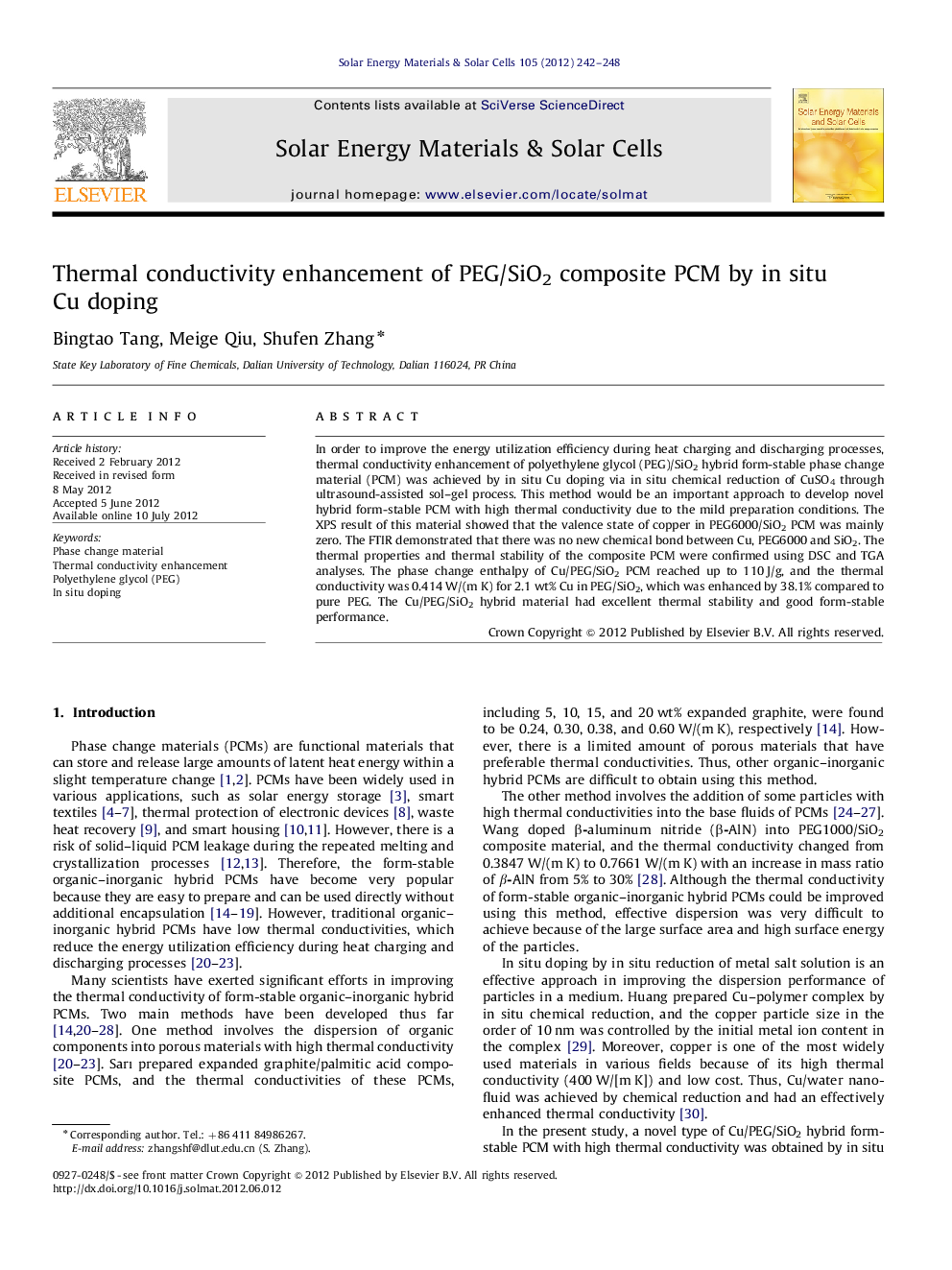| Article ID | Journal | Published Year | Pages | File Type |
|---|---|---|---|---|
| 78976 | Solar Energy Materials and Solar Cells | 2012 | 7 Pages |
In order to improve the energy utilization efficiency during heat charging and discharging processes, thermal conductivity enhancement of polyethylene glycol (PEG)/SiO2 hybrid form-stable phase change material (PCM) was achieved by in situ Cu doping via in situ chemical reduction of CuSO4 through ultrasound-assisted sol–gel process. This method would be an important approach to develop novel hybrid form-stable PCM with high thermal conductivity due to the mild preparation conditions. The XPS result of this material showed that the valence state of copper in PEG6000/SiO2 PCM was mainly zero. The FTIR demonstrated that there was no new chemical bond between Cu, PEG6000 and SiO2. The thermal properties and thermal stability of the composite PCM were confirmed using DSC and TGA analyses. The phase change enthalpy of Cu/PEG/SiO2 PCM reached up to 110 J/g, and the thermal conductivity was 0.414 W/(m K) for 2.1 wt% Cu in PEG/SiO2, which was enhanced by 38.1% compared to pure PEG. The Cu/PEG/SiO2 hybrid material had excellent thermal stability and good form-stable performance.
Graphical abstractA novel Cu/PEG/SiO2 phase change material with high thermal conductivity was obtained by using the in-situ doping of particles via in-situ chemical reduction through the ultrasound assisted sol–gel method.Figure optionsDownload full-size imageDownload as PowerPoint slideHighlights► Cu was successfully doped into PEG/SiO2 by a simple method. ► Thermal conductivity of PEG/SiO2 was effectively enhanced by in situ Cu doping. ► Doped material exhibited excellent form-stable character and phase-change performance.
